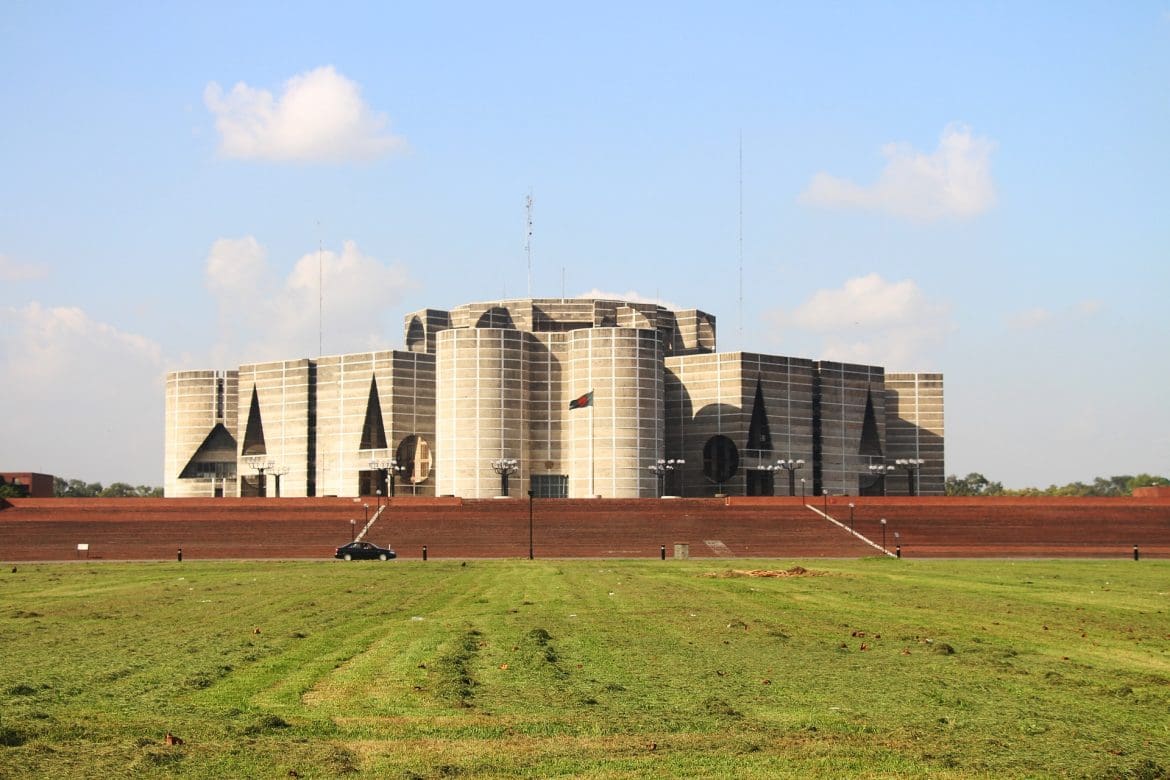KEY TAKEAWAYS
- Regulations are meant to clarify the rules of the game. If infrastructure is the hardware, policy, and regulations are the software.
- The government’s advances in infrastructure, energy, and other sectors can be effectively realized if proper regulations are put in place to create a business-friendly environment.
- Archaic regulations should be removed as they put obstacles for businesses.
- In some cases, the problem is an absence of regulations – a regulatory gap.
- Well-defined regulations are pivotal for the success of entrepreneurs.
- If the task of cleaning the stock of existing regulations is left to individual ministries, the exercise will likely end up being piecemeal.
- The government needs a central body to think about regulatory gaps and monitor technological developments pertinent to Bangladesh and conduct policy advocacy to the ministries. Countries such as South Korea, and the U.K. have formed such central bodies to modernize their regulatory systems.
“Why does a car need good brakes?” – a Wall Street titan asked in a documentary film that I watched several years ago. “So that it can be driven very fast!”, the titan answered his own question.
A very counter-intuitive answer to what would appear to be a banal question. Surely, a car needs good brakes so that it can be stopped when needed, not so that it can be driven very fast. But he was right! If your car brakes are faulty, you would either not drive the car or drive it rather slowly. But when your car has very good brakes, you would be emboldened to drive it very fast because you know, that if needed, the car can be brought to a dead stop in seconds.
This documentary was not on motor cars. It was on the financial meltdown of 2007-2008 and how the crisis was caused in large measure by a failure of the regulatory regime. The car analogy was used to talk about regulations. The point was simple. Regulations are often thought of as constraints on businesses and, of course, in many ways they are. But good regulations can also be empowering. How so – one may ask.
Regulations are meant to clarify the rules of the game. Businesses are important for any society, and social welfare is enhanced when a country has a vibrant business sector that operates in a way that protects the environment, supplies good quality goods and services to its customers, and provides a safe workplace, and decent wages to its employees. Regulations are there to ensure that as businesses pursue profits, which of course they should, they do it in a way that meets the societal goals mentioned above.
By making the rules of the game clear, good regulations provide guidance to businesses on how they may achieve these twin objectives. This emboldens businesses to be enterprising and go for innovative activities.
The government has emphasized the development of infrastructure and energy. Roads and highways are being built, as are bridges and ports. Power generation capacity is being increased, with an increasing emphasis on renewable energy. A Digital Bangladesh agenda is being implemented with vigor, aimed at enhancing services for the population and fostering businesses that leverage digital technology. All this is going to generate good results for the country if entrepreneurs take advantage of these.
That will happen if we create a conducive policy and regulatory environment for investors. If infrastructure is the hardware, policy and regulations are the software. With considerable attention being paid to the hardware, the time has now come to act on the software. An important part of this agenda is modernizing the regulatory framework for businesses. I would say this agenda is not just important, it is critical.
Regulatory deficiencies are of many types. Many regulations are redundant. These may have been relevant in the past but are no longer so. They serve no purpose, but businesses must incur costs in complying with these. The regulations may be rarely applied, and officers may have forgotten about these. But because they remain in the rulebook, some officer may randomly invoke these to harass businesses. No wonder businesses in Bangladesh constantly complain about regulatory harassment and uncertainty.
In some cases, the problem is not regulations as they exist or administered, but that there are no regulations. This is the problem of a regulatory gap. Let us think about this a bit.
We are in a world of fast-moving technology. As our entrepreneurs try to leverage technological developments and provide new goods and services, they will be discouraged if the rule books of the country lack well-defined regulations that clarify the rules of the game for them.
We learned this the hard way a few years ago when Uber first started its operations in Bangladesh. The regulatory authorities were confused. Is this a taxi company, an internet platform or something else? I do not know if the confusion has now been resolved.
It is true that some legal and regulatory reforms have been carried out, such as those related to e-payments, digital signature, and mobile financial services. These do provide some legal underpinning to activities that leverage technology. However, the process is slow while technology is evolving fast. Reforms are often reactive rather than proactive. This means that entrepreneurs in Bangladesh may have lost many golden opportunities to provide new types of goods and services leveraging technology, not just to the domestic market but perhaps to the global marketplace as well.
This brings me to my main point. I believe that government needs a central body to act as a major driver of regulatory reforms. Such a body will think about regulatory gaps. It would monitor technological developments relevant for Bangladesh, work out the legal and regulatory implications of these, learn how other countries are dealing with such technological innovations and prepare a roadmap of how Bangladesh should proceed. It should then persuade the line ministries to start preparing the required laws and regulations so that these are in place by the time the technology hits our shores.
Individual ministries and agencies sometimes do react to developments and take appropriate reform actions. But their reaction speed is often slow. More importantly, they may not have the capacity or incentive to think ahead. This is where a well-equipped central body with the right incentives and attitudes can play a very useful role.
Such a body may also look at the stock of existing regulations. It may create an inventory of all business-related rules and regulations in the country, assess which are redundant or irrelevant, and which are relevant but need to be modified and modernized. It will then send its recommendations to the relevant ministries in government for the necessary follow-up.
If the task of cleaning the stock of existing regulations is left to individual ministries, the exercise will likely end up being piece-meal. Only a central unit can do such reviews effectively, of course with the help of the ministries. The unit may also help improve the flow of new regulations by instituting a system of regulatory impact assessments. If a cost-benefit analysis is required of public investment projects, why shouldn’t one insist on something similar for rules and regulations?
The line ministry or agency proposing the new rule or regulation may be responsible for preparing the analysis but the central body that I am proposing can oversee this process. It can set the criteria to decide which rules and regulations will be subjected to the impact analysis and provide training and technical support to the line ministries and agencies.
Many countries have established such central bodies to modernize their regulatory systems. Examples include South Korea’s Regulatory Reform Committee, Mexico’s COFEMER (Federal Regulatory Improvement Commission) and the U.K.’s Better Regulation Executive. Bangladesh can learn from them and also from the sector specific regulatory commissions we have ourselves set up, such as the Bangladesh Telecommunications Regulatory Commission or the Bangladesh Energy Regulatory Commission. In fact, fifteen years ago, we did set up a Regulatory Reform Commission, inspired by the examples of South Korea, Mexico and the UK. But that body was short-lived.
With the economy of Bangladesh now even more dynamic and complex, and in this world of rapid technological change with all its regulatory implications, the need for such a body is even more urgent now than it was fifteen years ago.
About the Author

